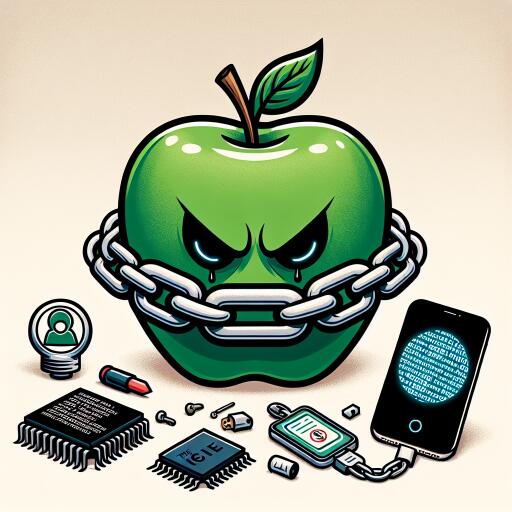Apple’s Stance on Right-to-Repair Legislation Draws Controversy Amid Parts Pairing Debate
Apple’s approach to product repair has often been a topic of heated discussion, with the tech giant facing criticism for what many perceive as a less repair-friendly attitude compared to its Android counterparts. The right-to-repair movement has gained momentum as a crusade to empower smartphone users with more options for repairing their devices, including sourcing repairs outside the brand’s official channels. Despite previously showing support for California’s right-to-repair legislation, Apple now finds itself at the center of a contentious debate over a new bill proposed in the Oregon State Legislature, which seeks to limit the practice of ‘parts pairing’—a mechanism that has raised questions about consumer rights and corporate control.
Understanding the Implications of Parts Pairing
According to a report by 404 Media, cybersecurity expert Tarah Wheeler provided testimony, including video evidence, in a hearing about the proposed bill, indicating Apple’s reluctance to relinquish full control over the repairability of its devices. During the hearing, John Perry, a senior manager on Apple’s secure design team, argued that parts pairing is implemented to “make repair easier.” He further explained that this practice is also a measure to ensure the security of the data on Apple devices. However, critics argue that parts pairing essentially forces consumers to use Apple-approved components for repairs, limiting the aftermarket options.
What the SB 1596 Bill Proposes
The SB 1596 bill under consideration in Oregon aims to compel companies to provide the necessary tools, parts, and documentation to both customers and repair shops, facilitating the repair of tech devices. This legislation starkly contrasts with existing California rules due to its stance on parts pairing. Under the proposed bill, manufacturers would be prohibited from using parts pairing to “reduce functionality or performance of consumer electronic equipment” or to “display unnecessary or misleading alerts or warnings about unidentified parts” that cannot be easily dismissed, according to The Verge.
Apple’s Response to the Bill
The significant backlash against parts pairing revolves around Apple’s practice of allowing the pairing of replacement parts such as displays and batteries only through its System Configuration tool. Customers are often met with warnings indicating that an installed part is not authentic, which in some cases, leads to the malfunction of features like Face ID. Perry, representing Apple, cautioned that the proposed changes in the SB 1596 bill would compromise the “security, safety, and privacy of Oregonians” by obliging manufacturers to accept parts of dubious origin for device repairs.
Apple’s Shift Towards a Repair-Friendly Policy
Despite these concerns, Apple has made strides towards accommodating the needs of DIY repair enthusiasts. The company has updated its process to allow for the swapping of parts without requiring Apple’s support, acknowledging users’ right to choose non-Apple parts for repairs. This move is contingent on the condition that the substitute parts provide a genuine depiction of the repair history without jeopardizing consumer safety, security, or privacy.
In a significant policy shift, Apple announced in October 2023 its plans to expand support for a wide range of Macs and iPhones through its Self Service Repair program.
Conclusion
As the debate over the right-to-repair laws and the practice of parts pairing continues, Apple’s efforts to balance security concerns with consumer rights remain at the forefront. The proposed Oregon bill, SB 1596, represents a pivotal moment in the ongoing struggle between tech giants and proponents of the right to repair, with implications that may well set a precedent for future legislation. It is yet to be seen how Apple’s evolving policies will align with the increasing demand for greater repairability and whether this will pave the way for similar initiatives in other states or even globally.










